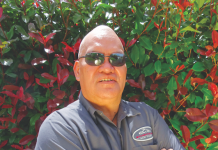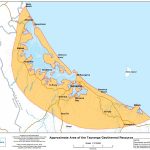A trend of which all social support services are becoming much more aware, is the increasing number of older people, generally single, who cannot obtain satisfactory and affordable rental housing. The reasons are simple. There are more older people on lower incomes in our city and far more people are living alone for various reasons. There are very few affordable small one or two-bedroom units in Tauranga unless more than one resident is helping with the costs. A growing number have never been able to get into home ownership or they may not be able to continue paying their mortgage or household overheads and have had to sell and return to renting.
Meet Anne…
Anne in her early seventies is a typical example who can now be considered homeless, although she has been in work for much of her life as a care-worker. After her husband died some years ago she brought up her children in a rental on a widow’s benefit. In more recent years she moved into the basement flat of her daughter’s home and looked after her children in exchange for rent. This has been a satisfactory arrangement but the family are now shifting away for a new work opportunity. She has a bit of money tucked away for a rainy day and so does not qualify for a local pensioner unit. Her housing choices are extremely limited unless she chooses to take a room as a boarder, try to return to the workforce, or she gets frail and is then assessed as needing rest home care, for which the state will pay. There is a direct correlation between poor living conditions, poverty and poor health.
No incentive for market to build suitable small homes for long term rental
A 2015 Salvation Army report on housing in retirement says that our NZ Superannuation assumes that a retiree will be living in a mortgage free home and this has been the case for the majority as home ownership was at a high rate for those forming households 30-45 years ago – but not now for baby boomers coming through with total rates of ownership now dropping below 50% in many places.
It is an accepted fact that if you are having to pay more than a third of your income on accommodation you have very little discretionary money and even if a very good money manager you still have very few choices. Anne is dependent on her single superannuation income and even if she could find a place near a bus stop or shops, she would be paying well over half her income. An accommodation supplement would help, but the escalating rents in Tauranga really penalise a person who feels that at their age and stage they wish to remain independent in their own warm and secure place. It is estimated that the number of pensioners who will be seeking an accommodation supplement will triple to 100,000 in New Zealand by 2025. However there also needs to be an adequate supply of suitable small homes for long term rental and recent research shows that the open market does not have incentives to build these.
Security of tenure needed
The average length of a rental is only about eighteen months which is in contrast to many parts of the world where tenants have long term protection and expect to be able to rent the same place on a capped rental for as long as they choose. New Zealand has neither security unless the person is in one of the far too few social housing rentals. Only a Government led building initiative will address this shortage in Tauranga, and the National Positive Ageing Strategy emphasises the Government’s commitment to recognising “the value and importance of lifelong good health and wellbeing” and that “Older people are recognised as an integral and valued part of families and communities”
The Tauranga community knows the issues and we care about our people. Therefore, we expect more action on affordable long-term housing solutions from our local and national leaders. All our citizens dneed to be able to enjoy positive ageing.
By Jo Gravit
I write for this magazine to create community awareness.










































































